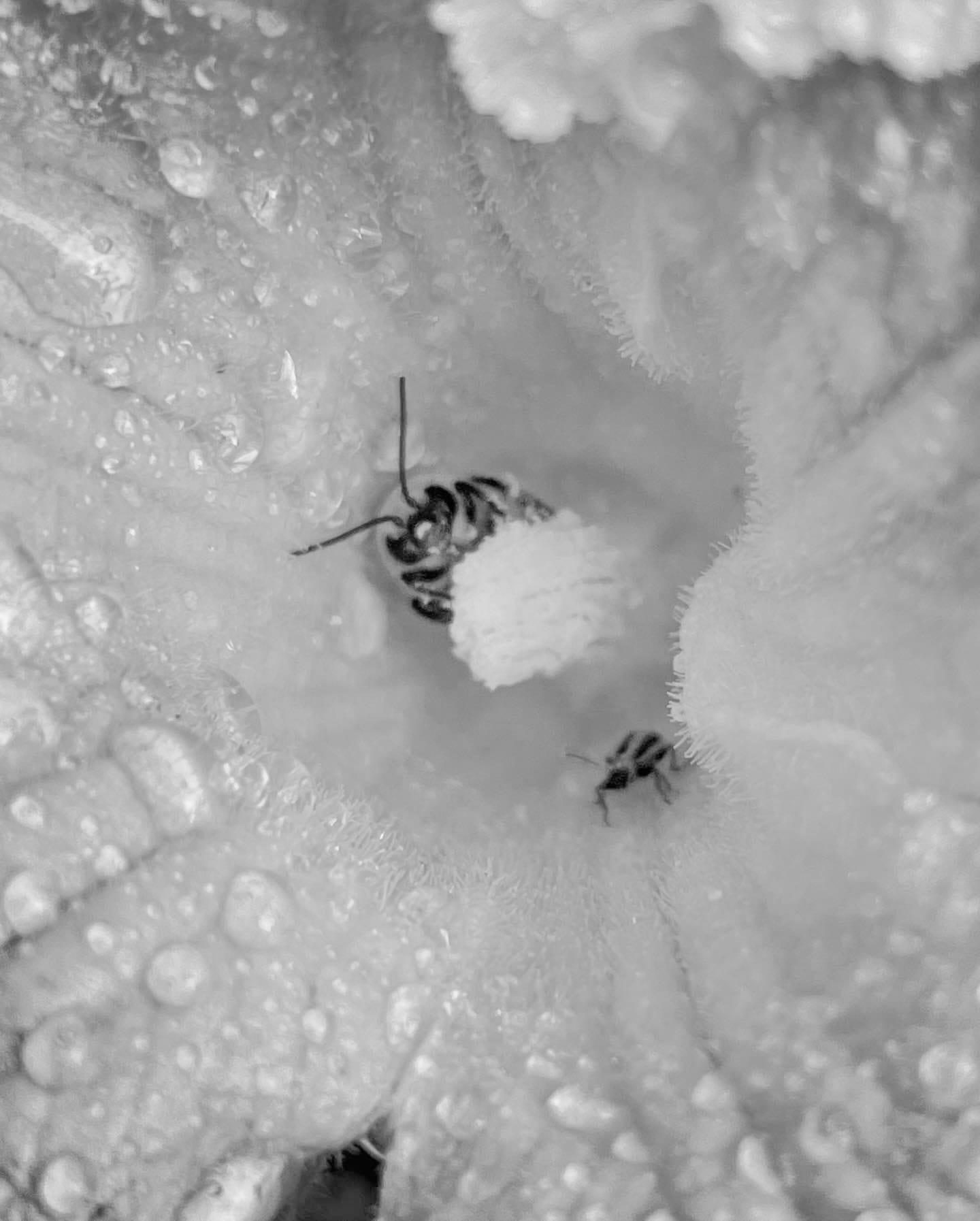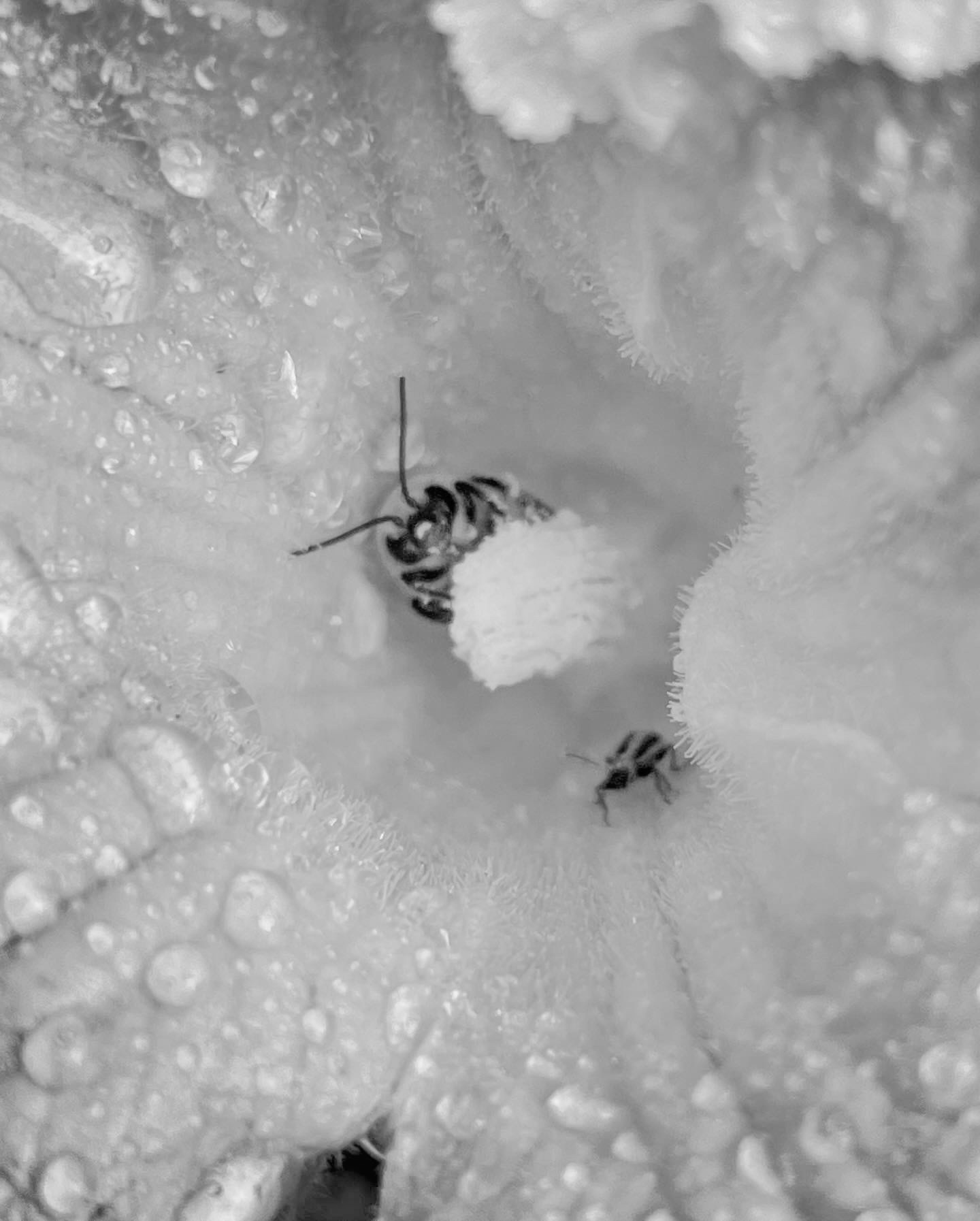Dawn Patrol 8.20.25


Transcript...
In 2022 research scientists at Queen Mary University of London. Did something that seemed a bit silly and unserious for people who, in my mind, wear lab coats all the time. They took tiny wooden balls and gave them two bumblebees. My first thought is why. My second thought is that sounds fun, and it was fun.
They watched bumblebees engaging in an activity that could only be described as play.
Given the small wooden balls, the fuzzy little bees pushed them around and rotated them with no obvious connection to either mating or survival. The behavior wasn't rewarded by scientists either. It seemed that the bees were just having a good time.
Every once in a while you hit one of those moments where you find yourself exploring the universal through the particular. This is one of those times because this fun little moment of bumblebees playing ball. Purchase you on the precipice of a very large and deep rabbit hole. Because this study on playful bees is part of a growing body of research suggesting consciousness may be widespread in the animal kingdom, even among creatures.
Very different from us. For decades, scientists have generally agreed that animals similar to humans like great apes, have conscious experiences. I direct you to the story of Australian legend, Ken Allen, an orangutan who escaped his enclosure several times, even sometimes taking some of the ladies in the enclosure with him, or Fu Manchu.
Another orangutan in Nebraska who escaped his enclosure a few times by picking the lock with a wire he kept hidden in his mouth. I would argue that an animal that can learn to pick the lock of its own cage has earned its freedom at that point. But now scientists are saying evidence is mounting. That consciousness could extend much farther than this elite club of things with thumbs.
A few weeks ago in a groundbreaking declaration, a group of 39 prominent researchers from various fields asserted that the empirical evidence indicates, quote, at least a realistic possibility of conscious experience in all vertebrates, including reptiles, amphibians, and fish. Even more surprisingly, they extend this to many invertebrates, including octopuses, crabs, and insects like the playful bumblebee.
This statement runs contrary to something like complexity theory, the idea that consciousness is this strange ghost that comes to life as soon as a system gets complicated enough like the human brain. Within complexity, consciousness arises. We assume the animal kingdom are these, uh, unconscious drones, and we walk among them like enlightened super beings.
But there are now 39 very prominent, super saying Not so fast, these bees are playing ball.
These scholars emphasize that a lot of uncertainty remains, but ignoring the possibility of consciousness would be irresponsible when making decisions that affect animal welfare. Essentially, if an animal might be conscious, we have an ethical duty to consider its wellbeing.
Signatories to the declaration include renowned figures like psychologists, Nicola Clayton and Irene Pepperberg, neuroscientists Anil, Seth and Christophe Koch zoologist, Lars Chika, and even philosophers. David Chalmers, the Reality plus guy, and Peter Godfrey Smith, the octopus guy.
If a wide range of animals. Conscious. What does that mean? Fundamentally, it suggests the inner world of animals may be richer than we've assumed raises questions about how we treat animals in context like farming, research captivity. I return you to my previous proposal regarding lock picking orangutans.
For a long time, we've looked skyward and wondered, are we alone in the universe? This cadre of 39 thinkers would like us to consider that we've skipped a step that the first place we should be looking for life in the universe is right here.
There are some questions that are too big to be ignored.
Then there are some questions that are so big that they have to be ignored
because what if we decide they're right?
What does that world look like?
Is it the paradise that the vegans hope for? It's also a world without pesticides. For all the crops we need to feed people, including the vegans. It's also a world where no trees can come down because hey, that's somebody's house. Are we really going to consider the work of these 39 scientists as we stroll through the zoo, or the cosmetic style or the deli?
I doubt it.
Maybe the root of all this is the idea of consequence. The idea that nothing we do is free of consequence. What you eat has consequence. Where you live has consequence. Where you go with the family to look at some fun animals has consequence.
We're never free of it in any aspect of our lives. So then what?
I suppose the first step is acknowledgement. This thing I do has consequences. What now? I don't know.
I suppose next is to decide for yourself what you can live with and what you can't. But we shouldn't ignore it, right? When the orangutan escapes the zoo for the third time by using a wire to pick the lock, and all we do is shrug our shoulders and put the ape back in the cage. We're missing something, aren't we?
If we ignore this apparent consciousness in other beings, we also ignore the consciousness in ourselves.
We're given the ability to know this. We are given the ability to understand things. We choose not to. If you ignore the consciousness of one animal, you ignore the consciousness of all animals, including yourself. If you ignore the consequences of the zoo, well then you're just in a zoo of your own making, aren't you?
But given is the wrong word, we weren't given consciousness. It happened to us all those years ago.
It has apparently happened to all of them too. All of these animals.
And figuring out what to do with all of that has been the journey of our species. So really and truly, I ask you what now?